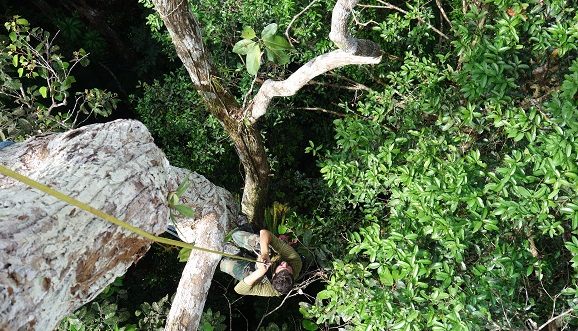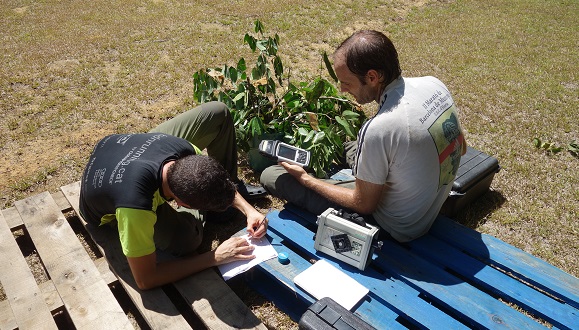Are the tropical forests losing their carbon storage capacity?
Recently published in the journal Nature Plants, a pioneering international study led by CREAF-based CSIC researcher Josep Peñuelas has used L-band passive microwave observations to measure carbon stocks and fluxes in the planet’s tropical forests more reliably than ever before.

The study’s observations of changes in carbon stocks between 2010 and 2017 show that tropical ecosystems are ceasing to act as a carbon sink. The tropics are thus becoming neutral in the carbon cycle (i.e. emitting and storing equal amounts of carbon) and could even turn into a source of atmospheric carbon in the near future, thus enhancing global warming.
The quantification of the distribution and dynamics of carbon stored in soil and plants is still an emerging field, and data obtained prior to the study in question are somewhat unreliable. The study used low-frequency L-band passive microwaves because they are more sensitive than their high-frequency counterparts, on which previous research has been based. Thanks to the new method, accurate satellite observations can be made in dense tropical forests, something that was not possible until now.
Carbon storage and climate change
Precisely determining the global carbon budget is crucial to be able to anticipate future climate change scenarios. Emissions of carbon into the atmosphere have been studied for many years, but the full cycle of its presence in plants and soil is as yet unknown. Drought is one of the causes of low carbon fixation levels in the tropics, and of the region’s neutral contribution to the carbon budget. Plant productivity falls when water is scarce, and that has a negative effect on carbon storage.

The study identifies deforestation as another cause of reduced carbon storage in the period analysed. There were substantial annual losses in carbon stocks in regions such as the southern Amazon, the Democratic Republic of the Congo and Indonesia due to the large-scale clearing of forests. The territories in which deforestation was not carried out on such a scale remain a carbon sink.
According to Josep Peñuelas, the data the study has provided are important for “closing the carbon cycle”, something he regards as vital given the current situation, which he describes as a “climate emergency”.
Carbon fixation is influenced by natural climate phenomena too
As the study points out, carbon fixation is also significantly affected by extreme climate phenomena. By way of example, Peñuelas mentions the extreme heatwave Europe experienced in 2003, which, he says, “turned the European continent as a whole into a source of CO2 instead of a carbon sink”. Another example is the 2015 El Niño event, which raised the mean global temperature and caused changes in tropical ecosystems.
“The atmospheric CO2 growth rate rises during El Niño because plant primary productivity declines”, explains Peñuelas, before adding that the rate in question falls during La Niña due to such productivity increasing. El Niño is a weather phenomenon characterized by the warming of the waters of the Pacific Ocean, and La Niña is its colder counterpart.
Article referenced:
Lei Fan, Jean-Pierre Wigneron, Philippe Ciais, Jérôme Chave, Martin Brandt, Rasmus Fensholt, Sassan S. Saatchi, Ana Bastos, Amen Al-Yaari, Koen Hufkens, Yuanwei Qin, Xiangming Xiao, Chi Chen, Ranga B. Myneni, Roberto Fernandez-Moran, Arnaud Mialon, N. J. Rodriguez-Fernandez, Yann Kerr, Feng Tian & Josep Peñuelas. “Satellite-observed pantropical carbon dynamics”. Nature Plants. DOI: https://doi.org/10.1038/s41477-019-0478-9






